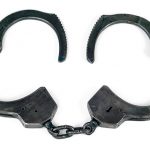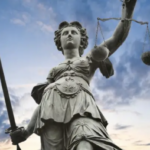Representations: How to Get Your Case Dropped Before it Reaches a Defended Hearing or Jury Trial

Our video and Blog post below discusses the question: What are Representations?
What are Representations?
Representations are basically letters to the prosecution asking them to drop some or all, or reduce the seriousness, of charges brought against you.
Charges can also be merged into one offence instead of lots of separate ones.
The charges that are laid at the beginning of the case are often the most serious ones.
They are laid by a prosecuting body such as the Police, DPP (Director of Public Prosecutions), RMS (former RTA), Local Council etc.
Representations are often remarkably successful at persuading prosecutors to eliminate the charges altogether, or to significantly reduce the charges and/or to change the ‘facts’ of the case, which are the allegations contained in the Court Attendance Notice.
Given how effective they can be, it is a wonder that more criminal lawyers don’t use them!
Representations are far better than adjournments, which can just prolong the court process and the best thing is, they can be done right at the beginning of a case!
In other words, there is no rule that a lawyer must wait for months before writing to the prosecution to drop or reduce charges.
If all goes well, in some cases you may not even have to appear before the magistrate at all, saving you time, money and stress.
If you are facing relatively minor criminal charges, you may be able to draft representations yourself and send them to the prosecution eg to the Local Area Commander of the police station that charged you.
You don’t necessarily need a lawyer to do this, although an experienced criminal lawyer will often be able to detect problems in the police case straight-away and draft the strongest possible document.
It may be best to get a good lawyer if you’re facing more serious charges.
In any case, here’s a rough outline of how to draft representations in less-serious cases:
1. Outline the charge(s) and your ultimate goal.
You might be requesting the withdrawal of charges or to have charges reduced or downgraded, for example an assault occasioning actual bodily harm might be reduced to common assault.
Drug supply may be downgraded to possession, which carries much lighter penalties.
2. Briefly outline the allegations against you
You may wish to touch-on the allegations made against you, which will normally be contained in the ‘Court Attendance Notice’.
3. Go through the evidence and find problems with the police case
This might be a little harder to do without a lawyer because they will know about:
- What the prosecution must prove,
- Whether the police evidence is likely to prove the charge,
- Whether it appears that proper procedure was followed (eg rules of stop, search & arrest),
- Any available legal defences etc.
But again, there is no rule that you can’t attempt to do it yourself.
Perhaps it’s a good idea in any case to see a lawyer for a free first conference and get some initial advice.
Remember, it is up to the prosecution to prove beyond reasonable doubt that you committed the offence.
If the prosecution cannot establish one or more of the ‘elements’ (ie ingredients) of the charge, there is a good chance that they will drop the case or reduce the charge to a less serious one, as they may otherwise lose the case in court, waste public funds and in some cases be liable to pay your legal costs.
4. Point out any relevant DPP policies and police guidelines
It is not the law, and has never been, that the prosecution must fully prosecute every charge of criminal conduct.
If there is not enough reliable and admissible evidence to establish the charge, or to provide ‘reasonable prospects of conviction’, DPP guidelines (found here) recommend that the charges be dropped.
Look through the criteria that prosecutors have to take into account and consider how they could relate to your case.
For example, if a witness seems unreliable this must be taken into consideration in the decision to prosecute.
Another issue that must be considered is whether the offence was trivial or ‘technical’ only – where perhaps the offence committed was minor and was committed inadvertently.
Prosecutors have a large amount of discretion, and if you can make a persuasive argument against taking the case any further based on the factors and considerations that must be considered in a decision to prosecute, you may be able to persuade them to drop charges or reduce them.
5. Conclusion
Once you have set out your arguments, persuasively reiterate your request: the withdrawal or reduction of the charges backed up with the arguments you outlined above.
As you can see, this may require a bit of time and research, but representations can be very effective.
Keep in mind that longer, more extensive representations (more than just a couple of pages) usually have a better chance of success, especially if your case is not minor or straightforward.
After giving the prosecution time to read and consider the document, you should call and talk to them about their views.






